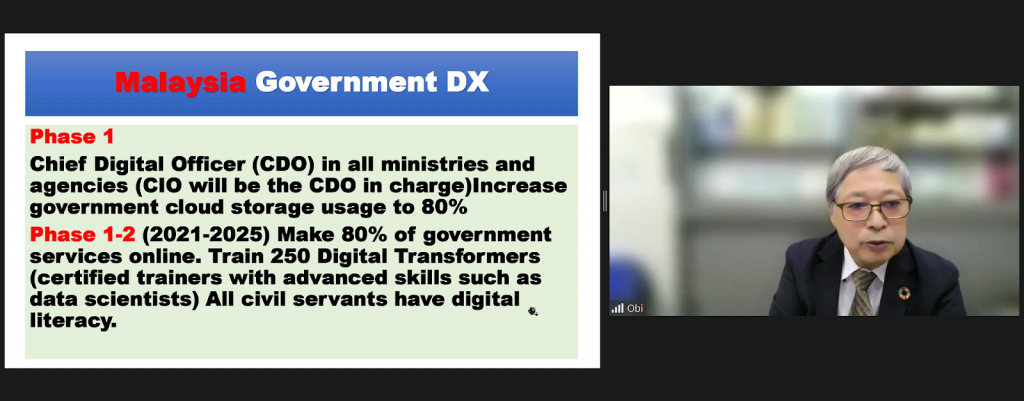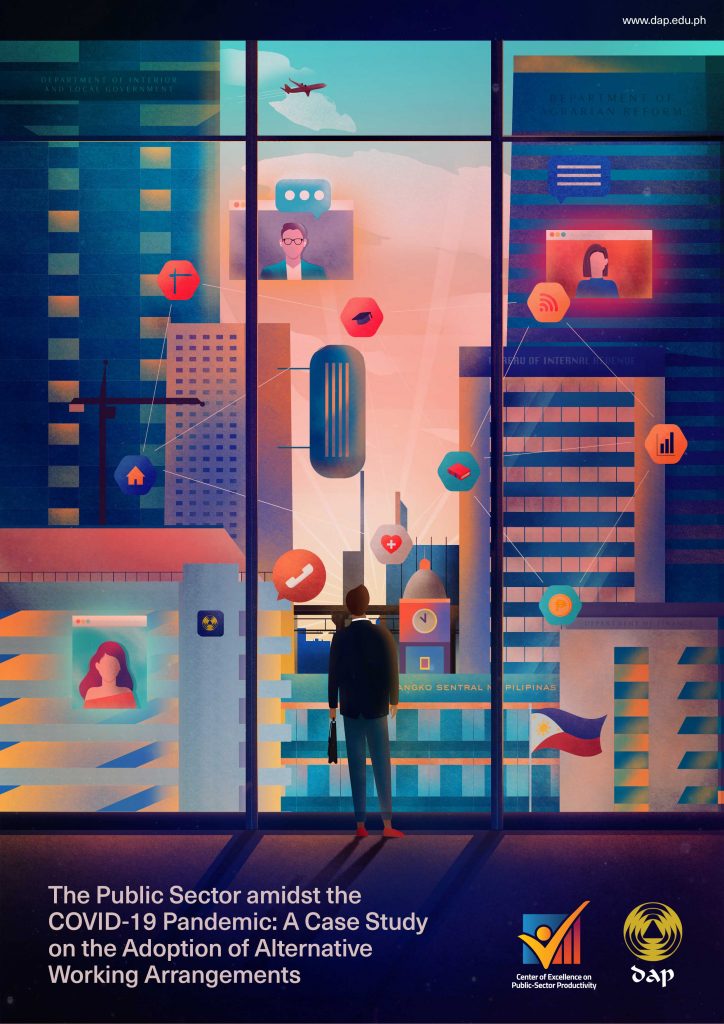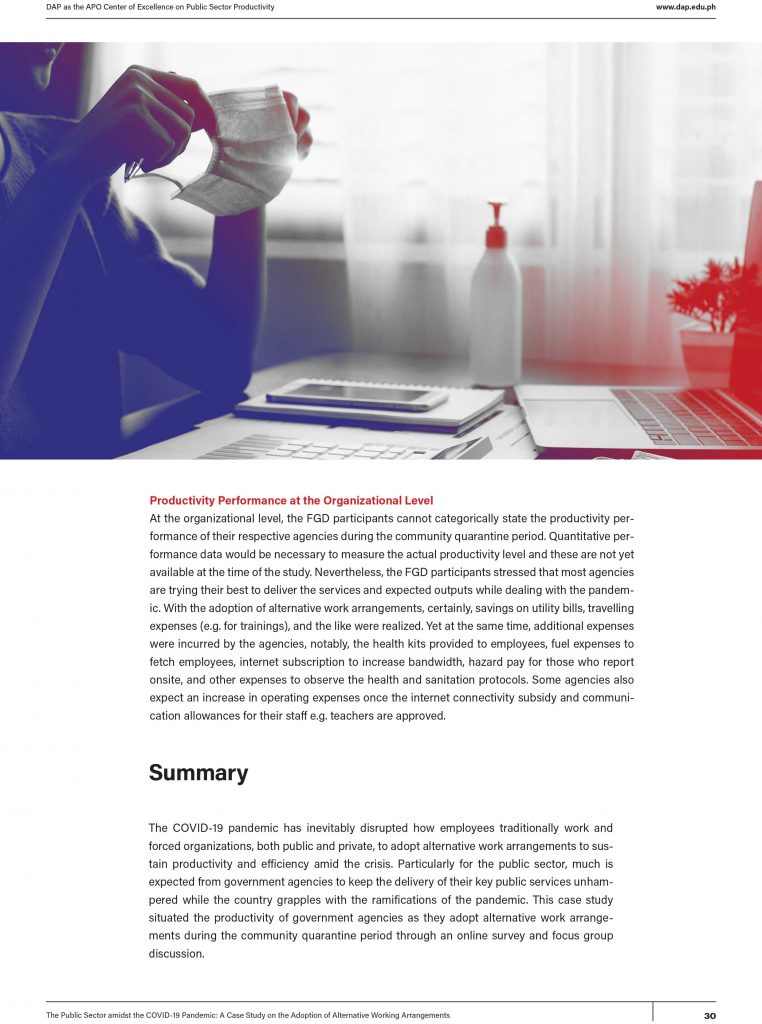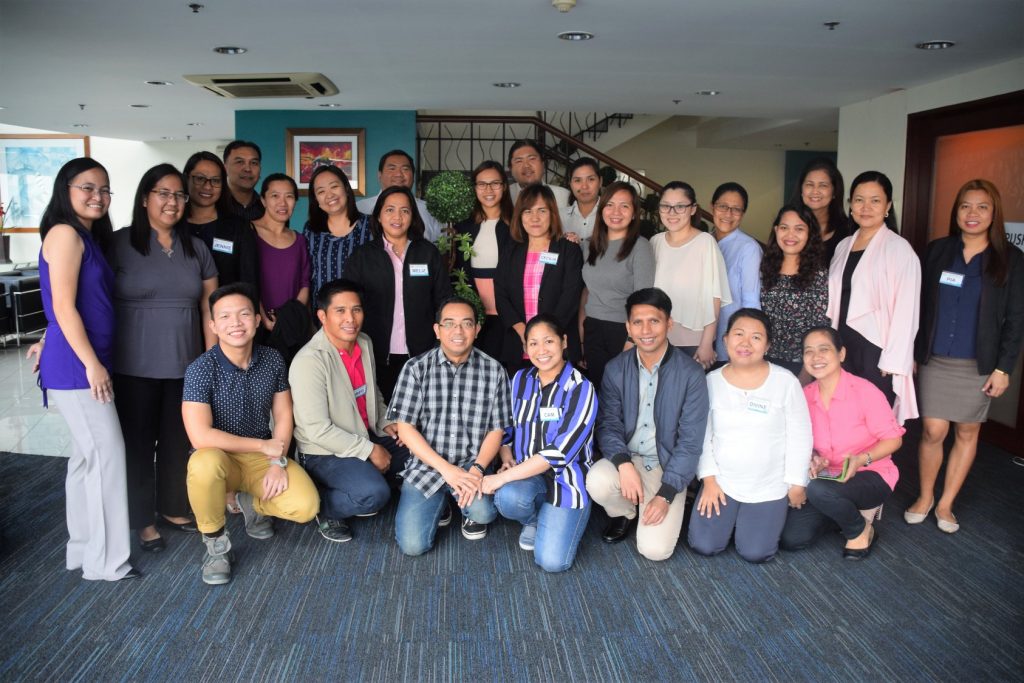The Development Academy of the Philippines (DAP) held a webinar series on Public Workforce Futureproofing: Elevating Productivity in the New Normal on 28-29 June 2022. The series discussed the changing landscape of the public sector’s work environment and the strategies that can be applied to face the challenges.
Former CSI Executive Director, Mr. Arthur Florentin (upper right) and Mr. Edward Santiago of Lifekite (upper left) discussing the trends and challenges around future-proofing the public sector workforce.
The changing landscape of work in the the public sector
The series opened with the former executive director of the Civil Service Institute (CSI), Mr. Arthur Florentin, who provided an overview on the future of work and the new competencies that need to be developed in the public sector. He identified four characteristics that continue to be evident, despite modernization efforts in recent years:
- Rigid practices
- Attendance-driven without indicating the type of work
- Manual processes for service delivery
- Standardization of past success factors
To better prepare the public sector for future risks and opportunities, Mr. Florentin suggested applying more results-oriented performance measurement, flexible working arrangements, and a strategic and anticipatory mindset. He explained that these changes would help organizations continue their work regardless of the situation and build the digital skills of staff.
Asked by a participant if the work-from-home arrangement has ensured productivity, Mr. Florentin said that, from the recent studies, it has ensured continuity but its effectiveness still depends on how leaders guide their staff. He also told another participant that retooling and upskilling strategies should focus on flexibility, agility, and lifelong learning.
Resiliency and wellness in the new era of work
The second day of the webinar series featured an interactive session on mindfulness and resilience led by Mr. Edward Santiago of Lifekite, a transformational growth company.
At the beginning of his lecture, Mr. Santiago defined mindfulness as a therapeutic technique to achieve a “mental state that is focused and aware of the present moment with acknowledgment of one’s feelings and thoughts.†He explained that mindfulness can help improve social relationships, reduce stress, and enhance one’s resilience through positivity and gratefulness. Organizations also benefit from mindfulness because it helps individuals focus better, thus elevating productivity and performance.
Mr. Santiago outlined four steps in practicing mindfulness:
- Pause and look for a breather
- Identify things to be thankful for and to improve
- Take deep breaths to calm down
- Care for one’s self to be healthy
During the Q&A with the participants, Mr. Santiago promoted compassionate leadership, educating staff, facilitating communication among individuals, and creating a psychologically safe environment in offices.
In relation to reaching targets in the public sector, a participant asked, “how can our managers help staff mitigate the mental health risks of overwork?†Mr. Santiago responded by saying, “compassionate leadership is essential in that it thinks how its team can better accomplish the job, but are also being productive and efficient. Education, also, to teach people that there is a new way of doing it, and communication.†The second session ended with a question on what structure an office can observe to maintain psychological safety and productivity in the workplace. The speaker suggested for a team to meet at least one hour in a week where they’ll be able to have a space to discuss their thoughts and express support for each other.
Replay of this webinar series is accessible on Facebook and Youtube. Stay tuned for more upcoming webinar series in the coming months.









